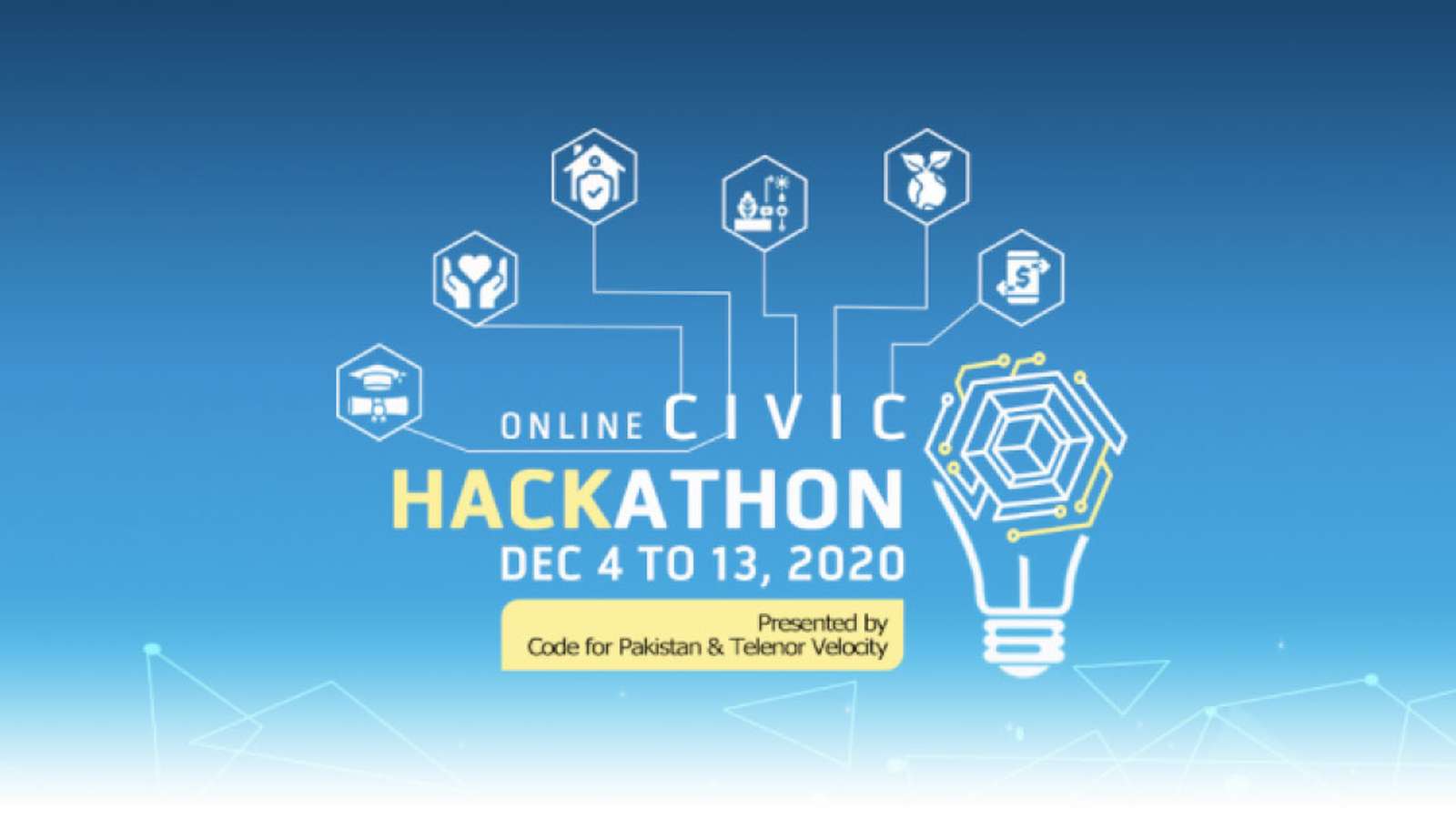
The Civic Hackathon 2020, Code for Pakistan’s first ever virtual hackathon co-organised with Telenor Velocity, brought together a mix of technologists, designers, social scientists, NGOs, private sector and government, among others, to solve social and civic problems in a new way using technology, innovative ideas, data and digital tools. The themes of this year’s hackathon included edtech, fintech, health, environment, food security and public safety.
This year, largely due to logistical constraints posed by COVID-19, a virtual hackathon format presented the opportunity to enable greater participation from all over the country. Over 680 applications were received in all, from more than 90 cities across Pakistan, as well as from Canada, Finland, Saudi Arabia, the UK and the US.
The Hackathon formally kicked off on Friday evening, Dec 4. This year, the teams also had more time to work on their projects, from Dec 4 through Dec 9, during which time they received guidance and advice from mentors, guest speakers and representatives from Code for Pakistan and Telenor Pakistan.
Guest speakers included:
- Dr Cedric Aimal Edwin (Chairman, Department of Management Sciences, CECOS University, Peshawar) who conducted a session on, Entrepreneurial Development: A Design Thinking Approach
- Arsalan Khattak (GitHub Campus Expert), who shared a detailed guide, Let’s Git It on how to use GitHub
- Professor Tim Unwin (Chairholder, UNESCO Chair in ICT4D and Emeritus Professor of Geography at Royal Holloway, University of London) who gave a talk on, Making Money and Doing Good: Challenges in Hacking Education for the Most Marginalized
- Saad Hamid (Developer Relations, Google) who spoke to the participants about, How to deliver a winning pitch.
Thirty mentors from various fields including education, health, fintech, environmental sustainability, public safety, food security, tech and user experience design, volunteered their time during the Hackathon to guide participants and help them refine their ideas and projects.
Twelve teams were shortlisted to pitch to the judging panel, and this year’s judges included:
- Areej Khan (VP Digital, Telenor Pakistan)
- Raymond Muhula (Senior Public Sector Specialist, Governance Global Practice, World Bank)
- Jehan Ara (President, P@SHA and Founder, The Nest i/o)
- Ali Ibrahim (VP Corporate Communications, Mobilink Microfinance Bank)
- Syed Ahmad (Founder and CEO, DPL)
During the virtual Closing Ceremony, Chief Guest Asad Umar, Federal Minister for Planning, Development and Special Initiatives, shared a special message for the participants, and then the winning teams were announced.
- The first prize went to Team Satisfire for their project, Ghirasti, a platform for women to share their skills, regain control of their free time, while developing a strong social network within their communities, gaining financial freedom, and building their confidence.
- Second prize was awarded to Team BioBeing, for their mobile app designed for collection of waste cooking oil from restaurants, hotels, and households, and their idea to convert it into biodiesel.
- Third prize went to Team Solution Seekers, who developed a mobile application, Faryad, that connects its users to a number of NGOs, doctors and hospitals to request them to raise funds on their behalf in cases of emergencies.
Sponsors for the Civic Hackathon included:
Quixel (Gold Sponsor) and Bentley Systems (Platinum Sponsor).
Partners for the Civic Hackathon 2020 included:
The World Bank, UNDP, Friedrich Naumann Foundation for Freedom (FNF) Pakistan, Pakistani Women in Computing (PWiC), Code for All, NOWPDP, NIC Pakistan, NIC Karachi, NIC Peshawar, NIC Quetta, NIC Lahore, Change Mechanics, TIE Islamabad, Foster Learning, Google Developers Groups, Women Techmakers, OPEN MIC, Startup Grind, Devenings, Code Girls, Women in Tech PK, Facebook Dev Circle, Microsoft Student Partners, NUST students clubs, and FAST.